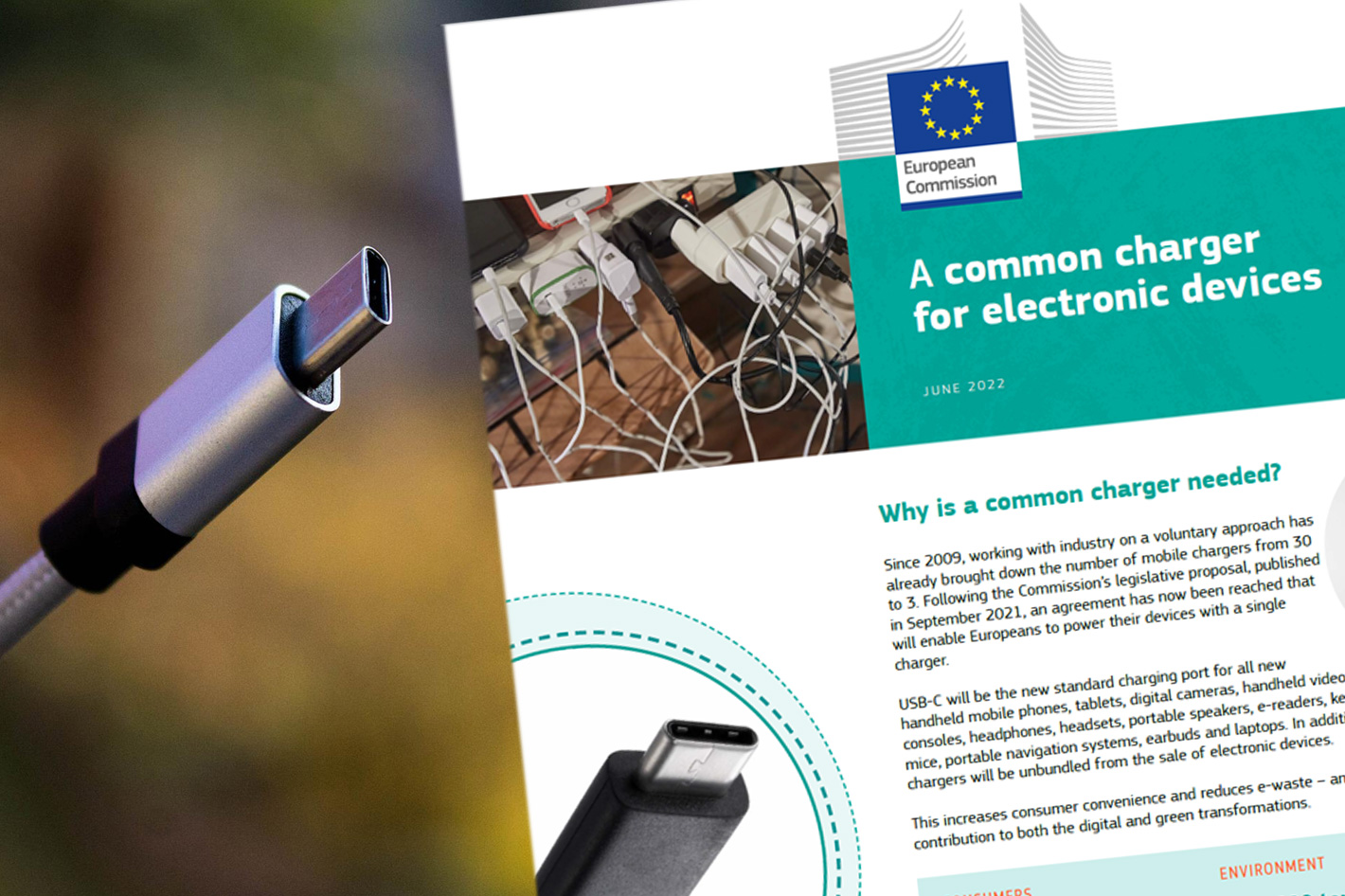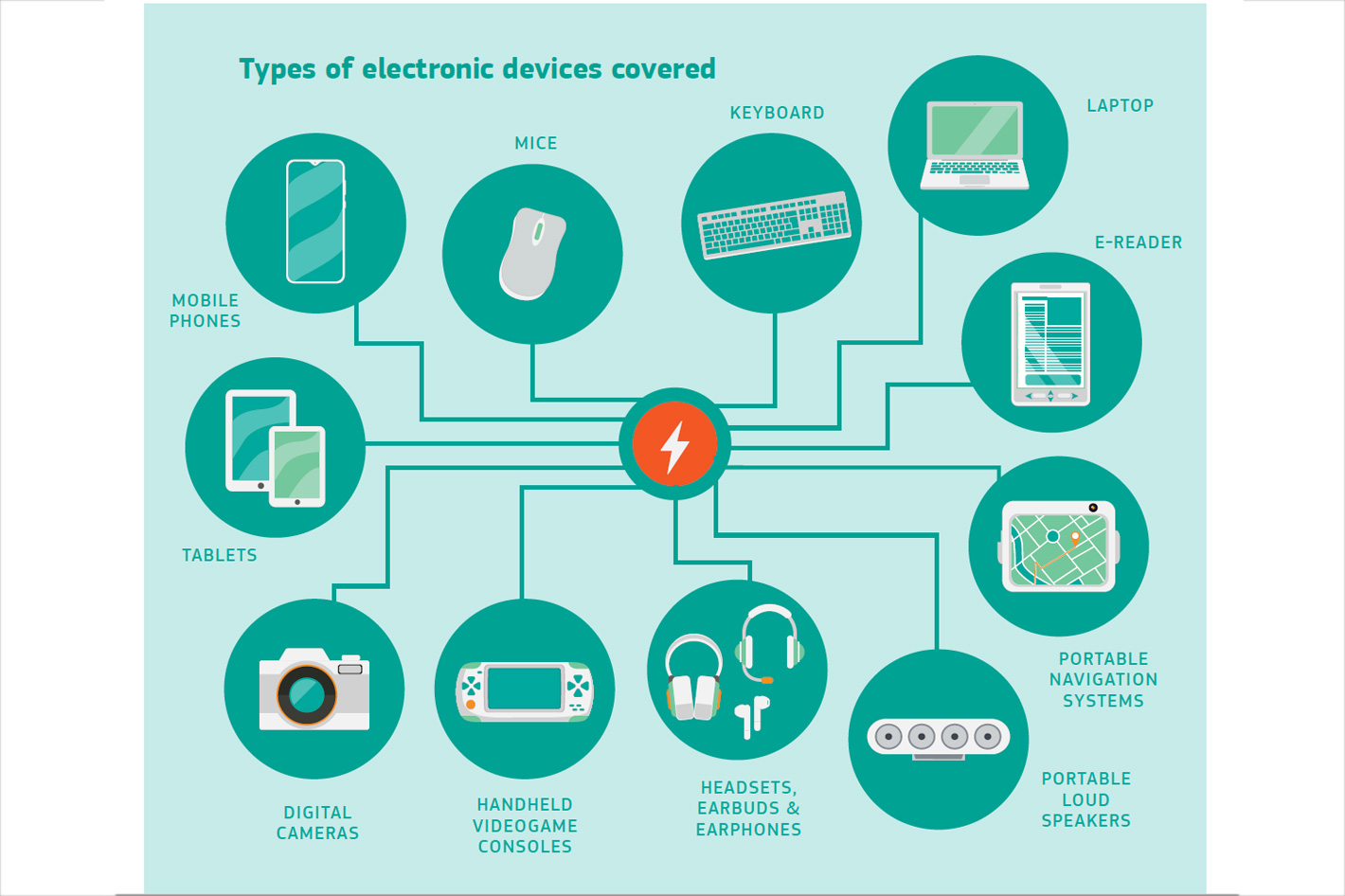
According to the latest information from European authorities, by Autumn 2024, USB Type-C will become the common charging port for all mobile phones, tablets and cameras in the EU. The provisional agreement on the amended Radio Equipment Directive, establishes a single charging solution for certain electronic devices. This law is a part of a broader EU effort to make products in the EU more sustainable, to reduce electronic waste, and make consumers’ lives easier.
The decision is not new as after a decade of pushing by the Parliament, the Commission presented a proposal on the common charger in 2021. On 23 September 2021, the European Commission adopted a legislative proposal to amend the 2014 Radio Equipment Directive, as a first step towards mandating a common charger for mobile phones and other small portable devices. Under the proposal, these devices would have to be equipped with a USB Type-C receptacle that can be charged with cables compatible with USB Type C, and to incorporate the USB Power Delivery communication protocol. Consumers would have an option to buy devices with or without a charger (unbundling). The proposal would go hand in hand with an initiative on the eco-design of external power supplies, so that the receptacle and the communication protocol for both ends of charger cables would be harmonised.
While many continue to discuss whether the decision is wise, as some defend it goes against fremdom of choice and other suggest it may limit the development of other types of charging solutions, the truth is that the USB-C standard seems to offer all that is needed now and for the foreseeable future, and it does not hinder, in any way, the development of wireless charging solutions. After looking at the dozens of cables and chargers we’ve around the house, I appreciate being told that a single cable and charger might do the job, but that’s just my two cents…


According to the European Parliament, under the new rules, consumers will no longer need a different charging device and cable every time they purchase a new device, and can use one single charger for all of their small and medium-sized portable electronic devices. Mobile phones, tablets, e-readers, earbuds, digital cameras, headphones and headsets, handheld videogame consoles and portable speakers that are rechargeable via a wired cable will have to be equipped with a USB Type-C port, regardless of their manufacturer. Laptops will also have to be adapted to the requirements by 40 months after the entry into force.
As some modern devices allow for quick charge, consumers might worry about how it all will work, but apparently the comission behind the new rules have looked at the market and note that “the charging speed is also harmonised for devices that support fast charging, allowing users to charge their devices at the same speed with any compatible charger.”
The European Parliament states that “consumers will be provided with clear information on the charging characteristics of new devices, making it easier for them to see whether their existing chargers are compatible. Buyers will also be able to choose whether they want to purchase new electronic equipment with or without a charging device.”
According to the EU Parliament these new obligations will lead to more re-use of chargers and will help consumers save up to 250 million euro a year on unnecessary charger purchases. Disposed of and unused chargers are estimated to represent about 11,000 tonnes of e-waste annually. For those who claim the measure limits development, Europeans say it is, in fact, “encouraging technological innovation” adding that “as wireless charging technology becomes more prevalent, the European Commission will be empowered to develop so-called delegated acts, on the interoperability of charging solutions.”
Parliament’s rapporteur Alex Agius Saliba (S&D, MT) said: “Today we have made the common charger a reality in Europe! European consumers were frustrated long with multiple chargers piling up with every new device. Now they will be able to use a single charger for all their portable electronics. We are proud that laptops, e-readers, earbuds, keyboards, computer mice, and portable navigation devices are also included in addition to smartphones, tablets, digital cameras, headphones and headsets, handheld videogame consoles and portable speakers. We have also added provisions on wireless charging being the next evolution in the charging technology and improved information and labelling for consumers”.

